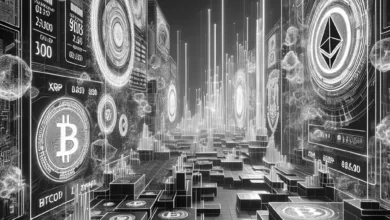Die Spitze der Geschwindigkeit: Solana dominiert als schnellste Blockchain in der Kryptowelt!
Entdecken Sie die Geheimnisse hinter Solana's atemberaubender Geschwindigkeit!

Blockchain technology has revolutionized the world of cryptocurrencies with its promise of decentralization, security, and efficiency. One key aspect that plays a crucial role in the success of blockchain networks is transaction speed. The faster a blockchain can process transactions, the more efficient and scalable it becomes, leading to increased adoption and usability in various industries.
The latest analysis in the crypto world has shed light on the fastest blockchains currently leading the race in transaction processing speed. Among these, Solana has emerged as the frontrunner, boasting an impressive record of 91 million transactions processed in a single day on April 6, 2024. This achievement translates to an average rate of 1500 crypto transactions per second (TPS), making Solana 46 times faster than Ethereum and over 5 times faster than Polygon. What makes this performance even more remarkable is that Solana has only utilized 1.6% of its maximum speed potential of 65,000 TPS, showcasing the scalability and efficiency of its blockchain network.
In comparison, other non-EVM blockchains have also showcased notable transaction processing speeds. Sui, another non-EVM blockchain, achieved 854 crypto TPS in July 2023, while TON and Near Protocol recorded 175 TPS and 118 TPS respectively. On average, non-EVM blockchains have proven to be almost 4 times faster than EVM-compatible blockchains, highlighting the importance of efficient architectural design and low congestion levels to enhance transaction speed.
When focusing on EVM blockchains, BNB Smart Chain (BSC) leads the pack with 378 TPS, followed by Polygon with 190 TPS. Although Ethereum and its top ten scaling solutions collectively reach 500 crypto TPS, they still fall behind Solana and Sui in terms of transaction processing speed. This data suggests that non-EVM blockchains currently hold the edge in transaction speed, potentially due to more optimized architectures and lower transaction volumes on the chain.
It is worth noting that the majority of real TPS records were set within the last 12 months, indicating a trend towards continuous improvements in blockchain performance across different networks. As advancements in blockchain technology continue to evolve, the focus on enhancing transaction speed and scalability remains a top priority for developers and network operators.
While Solana and Sui have established themselves as the fastest blockchains in the current crypto landscape, the future holds promises of even higher transaction volumes and improved network capabilities. The ongoing competition for speed and efficiency in blockchain technology propels innovation and drives the industry towards new heights of performance and usability.
As the world embraces the transformative potential of blockchain technology, the quest for faster and more efficient networks will shape the future of digital transactions, decentralized applications, and financial services. Solana’s remarkable speed and scalability exemplify the capabilities of blockchain technology to revolutionize industries and create new opportunities for global innovation and collaboration in the digital age.





